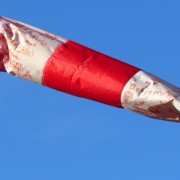Shale, not shallow – the ghosts of hardship
Who knows the tale of Heracles who – for a moment – carries the weight of the heavens on his shoulders? King Eurystheus had charged Heracles with 12 labors to atone for the slaughter of his family. The eleventh labor was fetching the Golden Apples of Hesperides and it was this labor that brought Heracles to ask Atlas, who carried the weight of the heavens on his shoulders, for help.
Atlas had been condemned to carry the heavens in all eternity by Zeus and was all too happy to have even the shortest of respites. Heracles was considered the only one who could take his place. But no matter how incredibly strong Heracles was, the heavens were an incredibly heavy charge that brought even this giant to his limits. He still stood tall. If you want more on that, get a good book on Greek mythology. It’s a great read.
Back to our hero. His real secret to success was that – the more weight was placed on his shoulders – the stronger he got and hence the more invincible he became as a result. This was the thread that ran through all of his stories.
His detractors always tried to make his life a misery only to find that every time they put their best efforts in, he was even harder to fight.
Something very similar is at play in energy right now, especially in the lean and mean world of shale drilling. Shale drillers are folks to be pitied. They enjoyed a Bonanza of investment into everything that had the slightest whiff of shale and now their investors caught cold feet as the market turned turkey on them.
But it wasn’t quite enough to kill them. They got cornered and as cornered dogs do, they got lethal. This cornering awakened one of the mightiest impulses that drive humans generally. The will to survive and the unbending determination to do anything, really anything they can to “not die”.
Their problems proved to be an invaluable workout in entrepreneurialism.
Just look at what’s happening on the shale drillers patch. The pretty substantial price differential between oil products and Natural Gas made those drilling rigs run on LNG instead of diesel making them cheaper to run and cleaner by the same token.
But the really important stuff is that drilling goes robotic. Old-style drilling has not changed enormously over the decades. Yes, there are new drill bits, there is directional drilling, there are super-powerful computers, and all the other bits of 21st-century gimmickry but there also are still lots of very dirty men running heavy metal equipment in smeary conditions.
Add to that increased resource awareness from better seismic mapping and evaluation and we have the seedlings for a new paradigm shift in oilfield economics. And the shifting just gets into high gear now.
The reason is the longest high-price market anyone can remember for a very long time. Almost a decade of super high prices has provided fertilizer to the innovative spirits of oil and gas entrepreneurs so they have kicked off initiatives that will continue bearing fruit for years to come. The dizzying price level gave them the HauDrauf mentality they needed to switch off even basic protection mechanisms. And now, the money is spent and they are in for good and bad.
Oil majors had it coming for quite a while actually but when life is so great that everyone comes on his knees to buy your oil and gas, why bother about those wormly wigglers at your feet?
Oil majors are still a bit like stand-up comedians. There are some standards in what they do (on the upstream side) as their jokes are always the same but as every audience lives through its vibes, its lots of customizing at the back end.
As long as the money comes gushing, nobody cares about the inefficient, bloated watermelon they call operations. Now, however, cash is less plentiful and at this point, it gets pretty interesting.
Let’s be real – the big energy companies would love to match or even out-compete the small and nimble but they can’t. The simple desire to do something (or not to do it) depends on many things but the single most potent driver is pain, need, and shortage. Think about it. You lose weight when the doctor starts to frown his eyebrows a little stronger and you start learning when the examination date is breathing down your neck.
Having the feeling that doom is on our heels ready to turn our lives to instant rubble, we get an adrenaline shot and do the things we would otherwise never do. That’s also what drives entrepreneurs.
Classic big energy companies don’t even know what pain is. Their massive organizations offer plenty of hiding room for the inefficient bits of the organization so there is always something producing cash that’s here to serve as a cloak for the other bits. This starts with line managers and goes through to the top. You might say “They are cheaters” but I would not be that harsh. Man does what man has to do in a certain situation and there is no obligation to present things in less favorable ways than necessary.
Besides, if done openly and transparently, cross-subsidies from other business units or departments are a good thing as it allows a company to take a strategic view. Those things are just not done very transparently most of the time and managers like to use them more to hide bad decisions rather than for strategic growth.
There is also a sense that the big companies are too big to fail which drives policymakers towards giving them lots of public subsidies, often as some form of advantage over others. If a bidding process eliminates everyone except those with large legal departments and deep pockets from the start, it’s a subsidy to one of the big ones. Things are often way more bespoke in those bidding processes.
It’s this “pimping the records” which allows the big companies to drag inefficiency along for a long time. When prices are high, the pain from those inefficiencies is so feeble that it cannot be felt even by the most ardent bean counters. So it stores up and balloons and balloons until one day, the company has to undergo deep restructuring as it is technically bankrupt. How many hides have companies like Shell shed already?
The renegade shale drillers in the US Midwest are changing this century-old game to the bones as on the shale pit, it’s not market weight that pulls the carriage but grit and determination to make it work. Small shale entrepreneurs have nothing to hide under. Their plight stares straight into our faces and even more into theirs. Even if they wanted, they could not even pretend their way out of trouble.
They must do what needs to be done and they will do it, no matter how hard, risky, or unsavory it might look to any of us. Having the cloak of supposed safety removed makes them want to clean up their act. A sense of imminent death hanging over them does not transform all of them into sitting ducks. Some are going rampant and in their rage, they transform an industry. Many of those fighting claw and nail will still die off but oil and gas will already be changed to the bone marrow.
And it’s this death-defying, clenched-fist kind of determination that brings solutions hatched under the previous high-price madness to the driller’s pad. Economies of scale are meaningless – economies of mass automation and flexibility beat them by a wide margin. They always did but as I said, it’s so wooly warm, and cuddly under the cloak of high prices. New energy is upon us.


















Leave a Reply
Want to join the discussion?Feel free to contribute!